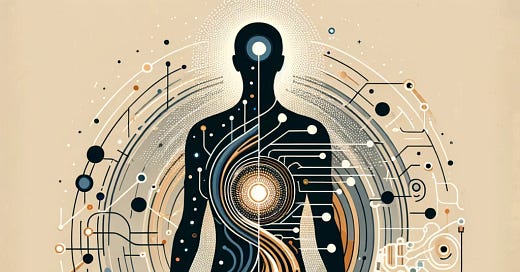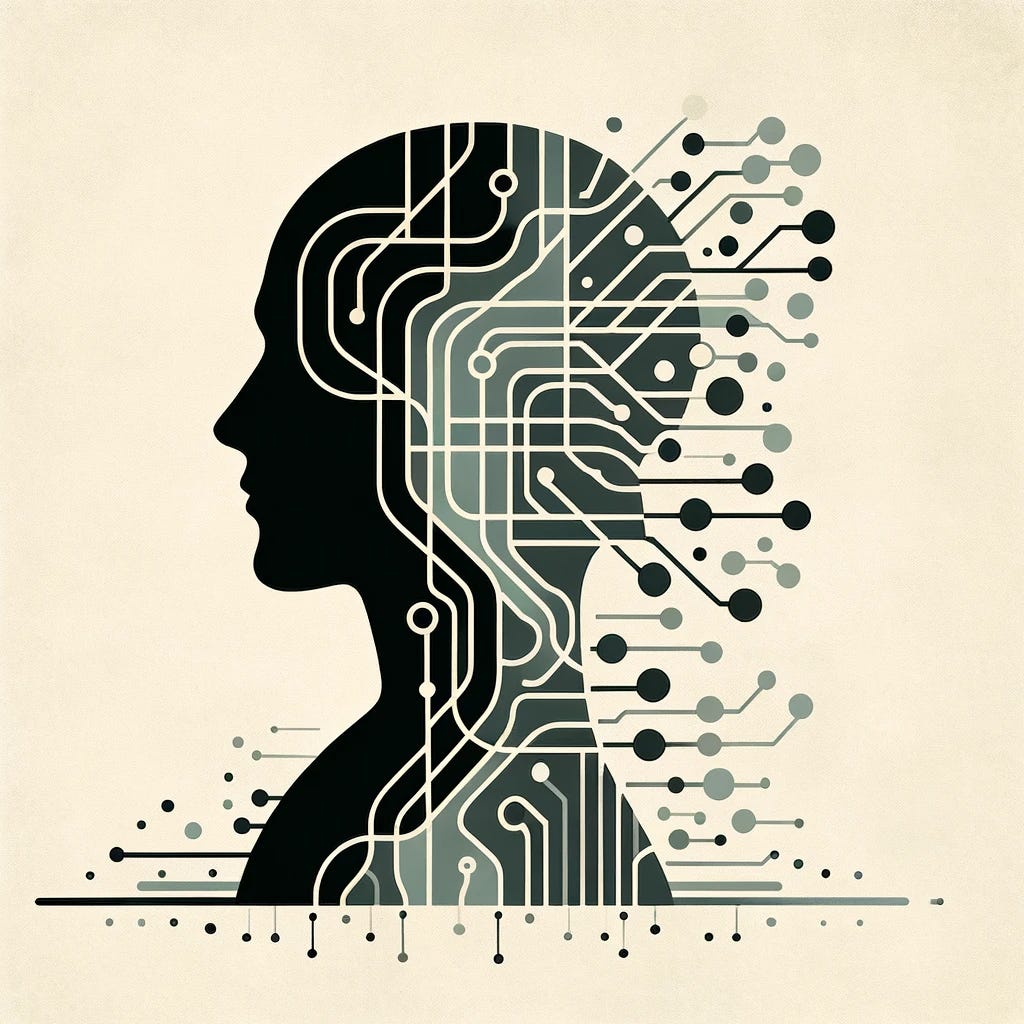Beyond the Soul: Rethinking Human Exceptionalism in the AI Era
What if consciousness is the easy part?
Could our belief in a "soul" be a delusion, falsely elevating us above artificial intelligence?
When we think about what makes humans unique, terms like "sentience," "consciousness," or "self-awareness" often come to mind. Yet, what if our belief in our distinctiveness is wrong? Large Language Models (LLMs) demonstrate abilities that we associate with self-awareness, consciousness, and abstract thought – essentially, elements of what we consider intelligence. Although not yet on par with human capabilities, there's no insurmountable barrier preventing further advancements in AI that could potentially bridge this gap. This raises the question: What if consciousness is the easy part?
Our culture has woven a complex mythology around human exceptionalism, citing morality, empathy, intelligence, self-awareness, foresight, and ambition as uniquely human traits. While some of these may distinguish us from other animals, they don't seem to set us apart from AIs in the same way.
It's a fallacy to anchor our distinctiveness on any single attribute. Current observations suggest that LLMs can mimic specific human capabilities (such as sensory perception, problem-solving, ethical reasoning, and locomotion), even if not yet integrating these functionalities at the human level.
Many people are inclined to define a "soul" as a metaphysical essence or a unique human capability, believing there exists some inherent aspect of humanity that AI cannot replicate. This perspective is probably fundamentally flawed. Humans are a holistic system—our physical bodies plus a complex, messy network of cognitive functions that constitute our self-identity. There are no cognitive abilities thus far identified as exclusively human that AI systems cannot replicate in some form. Indeed, all the abilities once thought unique to humans, such as abstract thinking, introspection, and symbolic manipulation, are now being explored by AI as well.
In conversations with AI skeptics, the argument for human exceptionalism often boils down to a mystical belief. Such skeptics find it challenging to pinpoint any specific abilities that, if replicated by AI, would challenge their belief in human uniqueness. This raises an intriguing question: Why do we insist that humans maintain an exclusive claim to intelligence? The knowledge that there are individuals more intelligent than myself does not undermine one's self-worth. So, why would the prospect of machine intelligence be seen as a diminishment of human value? I am excited about the coming age of spiritual machines, not depressed by the end of our uniqueness.
I find that the resistance to acknowledging AI's potential to replicate or even surpass human cognitive abilities lacks any verifiable predictions. Claims that "computers cannot be conscious because they are not human" are just dogmatic expressions of faith and lack the substance needed for a meaningful conversation about the nature of consciousness and intelligence. Without presenting any criteria for disproving their stance, such unfalsifiable arguments remain detached from a practical exploration of AI's capabilities and its evolving role alongside humanity.
Historically, predictions about AI's capabilities have been notoriously inaccurate. Initial optimism that creating reasoning entities would be straightforward gave way to the realization that replicating common sense was far more challenging, stalling progress for decades. However, recent advancements have seen AI excel in areas previously deemed highly complex, such as art, music, speech, poetry, and common sense reasoning. This progression suggests no fundamental disparity in the capabilities between humans and AI.
While current AI systems may not yet be considered intelligent or sapient, the continuous narrowing of the gap between human and AI capabilities is evident. The journey towards achieving true AI sapience is likely not contingent upon a singular breakthrough, but rather on the steady advancement in specific competencies and the integration of diverse systems.
I let ChatGPT write the final paragraph:
In light of these considerations, it becomes increasingly clear that holding onto the notion of human exceptionalism in the face of advancing AI is not only untenable but also a hindrance to understanding the true potential of intelligence, whether biological or artificial. The advancements in AI challenge us to reconsider what we consider uniquely human and to embrace a future where intelligence is not monopolized by any single entity or species. Accepting this reality does not diminish our value but enriches our understanding of the complexity and diversity of intelligence itself. It's time to move beyond mysticism and unfounded skepticism, to engage with the possibilities AI presents, and to explore how humanity can coexist and collaborate with intelligent machines, leveraging this partnership to address the myriad challenges facing our world today.





